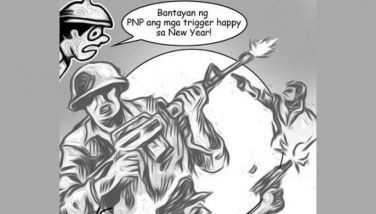DTI triples Negosyo Centers nationwide
MANILA, Philippines – The Department of Trade and Industry (DTI) has more than tripled the number of Negosyo Centers across the country to 447 last year from 144 in 2015 to strengthen its support and services to the growing number of micro, small, and medium enterprises (MSMEs) nationwide.
DTI said 298 Negosyo Centers were opened last year, 197 of which were launched covering the period July to December under the Duterte administration.
The agency said it is the second consecutive year it surpassed its targets for the establishment of Negosyo Centers.
“An entrepreneurial nation is what will give the Philippines a good chance towards economic prosperity. Negosyo Centers are people’s partners towards inclusive growth. This is part of the government’s commitment to encourage entrepreneurship among ordinary Filipinos,” Trade Secretary Ramon Lopez said.
Overall, DTI was able to assist a total of 491,314 clients nationwide and conducted over 6,000 seminars for MSMEs and aspiring entrepreneurs last year. Negosyo Centers also created over 41,000 MSMEs.
Dubbed as “infrastructure of entrepreneurship,” Negosyo Centers provide efficient services to MSMEs through provision of business mentoring services, information on market, and access to money.
These centers are expected to bring in business opportunities to communities and MSMEs and contribute to countryside development.
The launching of Negosyo Centers is in line with Republic Act 10644 or the Go Negosyo Act which aims to help MSMEs, promote ease of doing business, facilitate access to grants and other forms of financial assistance to MSMEs and provide access to shared service facilities, and other equipment.
In line with the growing number of Negosyo Centers nationwide, Lopez urged overseas Filipino workers (OFWs) to invest back in the country as demand for work abroad may not be slowing.
He said OFWs may explore idea-based, demand-driven, and innovation-led business and investment opportunities at home in the industries of food, franchising, agriculture, and services.
“OFWs’ distinguishing characteristic of being hardworking is the same element that will lead them to better quality of life,” Lopez said.
- Latest
- Trending

























